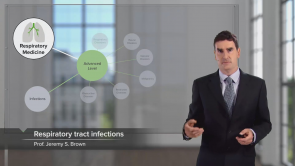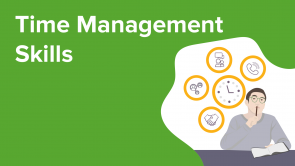Your Office or Workshop Environment

About the Lecture
The lecture Your Office or Workshop Environment by Tony Hunt is from the course Time Management Skills. It contains the following chapters:
- Re-Cap of Chapter 1
- Your Office or Workshop Environment
- Steps to manage Interruptions
- The Pareto Principle
- Importance and Urgency
- Prime and Down Time
- Diary Management
- Enjoy your Work
- ABCD-Method
- Ruling the Telephone
- Crisis
Included Quiz Questions
What are the five steps to manage interruptions?
- Do not disturb signs, morning huddles, be polite and assertive, stand up and avoid eye contact
- Do not disturb signs, morning huddles, be polite, stand up and avoid eye contact
- Office hours signs, morning huddles, be polite and assertive, stand up and avoid eye contact
- Do not disturb signs, morning huddles, be polite and assertive, sit and avoid eye contact
What are five other steps to manage interruptions?
- Make them work for you, move your desk, create a “green screen”, scrounge, delegate them
- Make them work for you, move your desk to face the door, create a screen, scrounge, delegate them
- Make them work for you, move your desk, create a “green screen”, scrounge, deal with them by yourself
- Make them work for you, create a “green screen”, scrounge, delegate them, make appointments
I should focus on Quadrant One activities.
- No. Quadrant One is totally reactive. Have as few of those activities in your life as possible. Quadrant Two (important, but not urgent) is where you can be most productive.
- Quadrant One is the first quadrant so that is where I should be.
- I will work on whatever comes in to my mind first.
- I will work on everything at the same time because I like to multi-task.
What should be included in the dairy management?
- Appointments
- Interruptions
- Preparation
- Follow-on tasks
- Personal issues
What are the four steps to deal with paper mountains?
- Action it.
- Bin it.
- Check in dairy.
- Delegate it.
- Do it.
Is it important that I check my emails every time a new message arrives?
- Probably not. Unless answering emails is a key task, you are maybe not prioritising correctly. Email is not normally used as instant messaging, so your time would be better used of you only went in to your inbox when it has accumulated a number of emails.
- If I do not answer my emails immediately, my boss/client/colleague calls me on my phone. If this is the case, you need to educate people in the etiquette of email.
- I work more effectively if I keep it to speed with my emails. In most cases this is not true. Your recovery time is totally wasted time, and it accumulates as you move from task to task.
- Probably yes. Email is way of communication that implies urgency. An immediate response is necessary.
How do you use the telephone more effectively?
- ‘Talk & Do’ principle
- Send an email.
- Use voicemail.
- Conference calls
- Only answer when you have free time.
What helps you to work more efficiently?
- Trying to say ‘No’
- Practising assertiveness
- Saying ‘Yes’ to every task
- Practising politeness
Customer reviews
5,0 of 5 stars
| 5 Stars |
|
1 |
| 4 Stars |
|
0 |
| 3 Stars |
|
0 |
| 2 Stars |
|
0 |
| 1 Star |
|
0 |
i learned alot from this topic! I enjoyed this one. i can apply this to my workplace.




